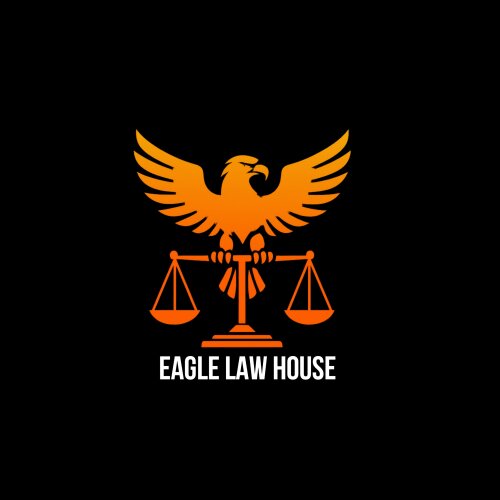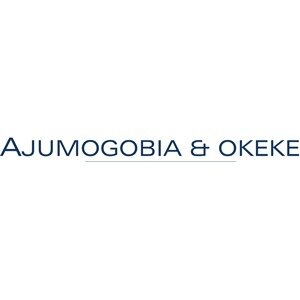Best Merger & Acquisition Lawyers in Nigeria
Share your needs with us, get contacted by law firms.
Free. Takes 2 min.
Or refine your search by selecting a city:
List of the best lawyers in Nigeria
Legal guides written by Adeola Oyinlade & Co:
- Procedure and Requirements for Work Permit and Visas in Nigeria
- The Step-By-Step Procedure of How to Apply for Microfinance Bank License Online in Nigeria
- How to Ensure the Smooth Recognition and Enforcement of Foreign Judgments in Nigeria
About Merger & Acquisition Law in Nigeria
Merger and Acquisition (M&A) law in Nigeria covers the legal frameworks and processes involved in the consolidation of companies or assets. This includes both mergers, where two companies combine to form a new entity, and acquisitions, where one company purchases another. In Nigeria, the legal landscape for M&A is governed by several regulatory bodies, including the Securities and Exchange Commission (SEC) and the Corporate Affairs Commission (CAC). These bodies ensure that transactions comply with the Investments and Securities Act and other relevant legislation, focusing on transparency, fairness, and corporate governance.
Why You May Need a Lawyer
Legal guidance is crucial in M&A transactions for various reasons. A lawyer can help navigate the complex regulatory environment, conduct due diligence, draft agreements, and negotiate terms. Common situations requiring legal assistance include:
- Negotiating and structuring the terms of a merger or acquisition.
- Ensuring compliance with Nigerian regulatory requirements.
- Conducting thorough due diligence to uncover any potential liabilities.
- Drafting and reviewing all necessary legal documentation and contracts.
- Resolving any disputes or legal issues that arise during the transaction.
Local Laws Overview
The M&A process in Nigeria is primarily regulated by the Investments and Securities Act, the Companies and Allied Matters Act (CAMA), and guidelines issued by the SEC. Key aspects of local laws include:
- Approval Requirements: M&A transactions typically require approval from the SEC and could necessitate notifications to other regulatory bodies depending on the industry involved.
- Due Diligence: A comprehensive due diligence process is mandatory to assess the financial, legal, and operational status of the entities involved.
- Tax Considerations: Tax implications are a critical component of M&A transactions, with potential tax reliefs available under certain conditions.
- Labour Laws: Employment and labor law considerations, especially regarding the transfer of employees, must be adhered to in M&A transactions.
- Competition Laws: The Federal Competition and Consumer Protection Commission (FCCPC) oversees compliance with competitive practices to prevent monopolies.
Frequently Asked Questions
What is the role of the SEC in M&A transactions?
The SEC is responsible for ensuring that M&A transactions comply with the Investments and Securities Act. It oversees the approval process and ensures transparency and fairness in the transaction.
Do all M&A transactions require regulatory approval?
While not all transactions require approval, significant transactions, especially for public companies, must be approved by the SEC. Other sector-specific regulatory bodies may also need to be informed or grant approval.
What is due diligence in M&A?
Due diligence is a comprehensive appraisal of a business, typically required to evaluate its assets and liabilities and assess its commercial potential. This process helps identify risks and ensure informed decision-making.
How long does the M&A process take in Nigeria?
The duration of the M&A process varies depending on the complexity of the transaction, regulatory approvals, and the due diligence process. It can range from several months to over a year.
What are the tax implications of an M&A transaction?
M&A transactions can incur taxes such as capital gains tax, value-added tax, and stamp duties. It's essential to assess these implications during the planning stage to optimally structure the deal.
Are there restrictions on foreign participation in M&A deals?
There are no general restrictions, but certain sectors like oil and gas may have local content requirements or restrictions on foreign ownership that need to be considered.
Can a merger or acquisition be reversed?
Reversals are complex and uncommon, usually requiring evidence of serious breaches of terms or fraud in the initial transaction. Legal guidance is crucial in these scenarios.
What is the importance of non-compete clauses in M&A agreements?
Non-compete clauses protect the acquiring company by restricting sellers from starting or joining competing businesses within a specified timeframe and geography post-transaction.
Do employees’ contracts automatically transfer in a merger?
Employment contracts may transfer, but it depends on terms specified in the agreements and relevant labor laws, which protect employees against unfavorable transitions.
How is confidentiality maintained during an M&A transaction?
Confidentiality agreements are essential and legally bind parties to protect sensitive information throughout process, ensuring competitive advantages and protecting business interests.
Additional Resources
For those seeking further assistance on M&A in Nigeria, consider reaching out to the following resources:
- Securities and Exchange Commission (SEC): Provides oversight and guidelines for the securities sector in Nigeria.
- Corporate Affairs Commission (CAC): Oversees company registrations and filings in Nigeria.
- Federal Competition and Consumer Protection Commission (FCCPC): Ensures fair competition practices.
- Nigeria Investment Promotion Commission (NIPC): Offers guidance and support for foreign trade and investment.
Next Steps
If you require legal assistance in conducting a merger or acquisition in Nigeria, consider taking the following steps:
- Engage a reputable lawyer specializing in M&A to ensure all aspects of the transaction are legally compliant.
- Conduct preliminary research to understand industry-specific regulations that might affect your transaction.
- Prepare an initial outline of your objectives and possible transaction structures to discuss with your legal advisor.
- Contact the relevant regulatory bodies for any preliminary guidance or consultation they may offer.
Lawzana helps you find the best lawyers and law firms in Nigeria through a curated and pre-screened list of qualified legal professionals. Our platform offers rankings and detailed profiles of attorneys and law firms, allowing you to compare based on practice areas, including Merger & Acquisition, experience, and client feedback.
Each profile includes a description of the firm's areas of practice, client reviews, team members and partners, year of establishment, spoken languages, office locations, contact information, social media presence, and any published articles or resources. Most firms on our platform speak English and are experienced in both local and international legal matters.
Get a quote from top-rated law firms in Nigeria — quickly, securely, and without unnecessary hassle.
Disclaimer:
The information provided on this page is for general informational purposes only and does not constitute legal advice. While we strive to ensure the accuracy and relevance of the content, legal information may change over time, and interpretations of the law can vary. You should always consult with a qualified legal professional for advice specific to your situation.
We disclaim all liability for actions taken or not taken based on the content of this page. If you believe any information is incorrect or outdated, please contact us, and we will review and update it where appropriate.
Browse merger & acquisition law firms by city in Nigeria
Refine your search by selecting a city.

















